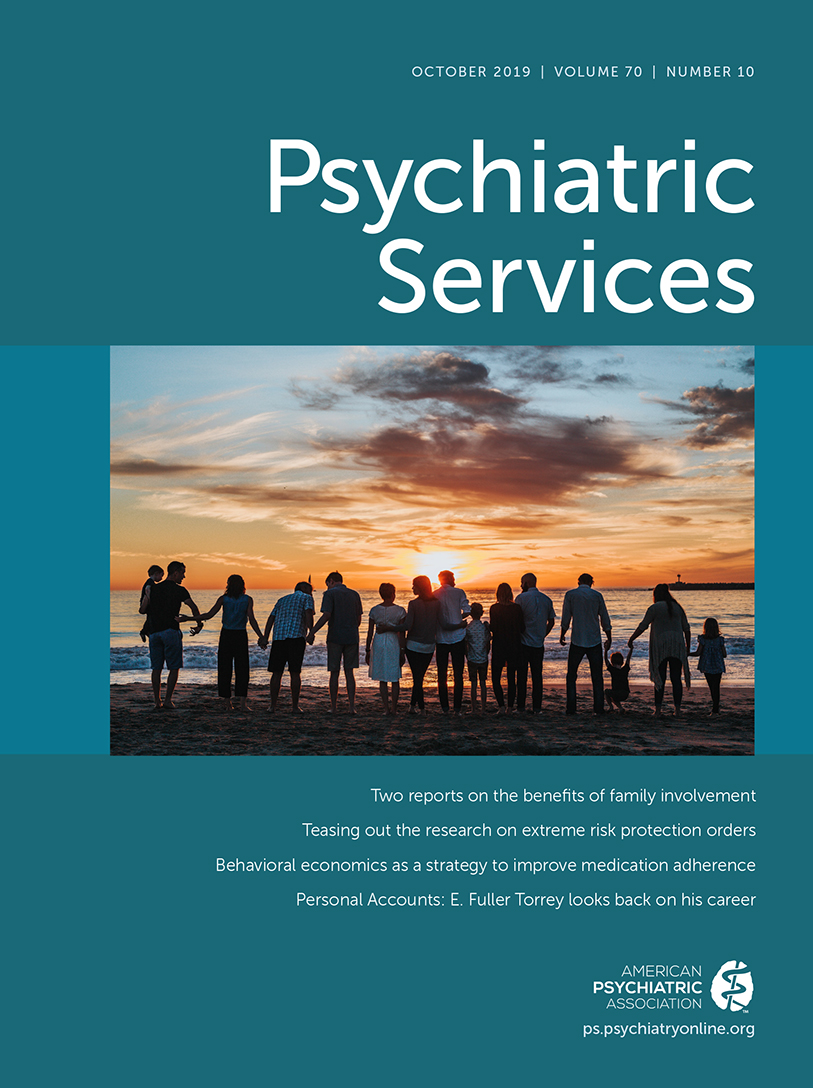Effectiveness of the NAMI Homefront Program for Military and Veteran Families: In-Person and Online Benefits
Abstract
Objective:
This study aimed to evaluate the effectiveness of Homefront, a six-session, peer-taught family education program by the National Alliance on Mental Illness (NAMI), delivered in person or online, for families or support persons of military service members or of veterans with mental illness.
Methods:
Program participants completed online surveys at baseline, at the end of the program (postprogram), and at 3-month follow-up, which measured subjective empowerment, burden, coping, psychological distress, family functioning, experience of caregiving, and knowledge of mental illness. A mixed-effects model examined change over time.
Results:
A total of 119 individuals (in person, N=63 [53%]; online, N=56 [47%]) enrolled. Participants showed statistically significant improvement on all dimensions between baseline, postprogram, and follow-up, except for subjective burden, which improved between baseline and follow-up. Results for in-person and online formats did not differ.
Conclusions:
The six-session NAMI Homefront program was associated with benefits for military and veteran family members and support persons.




